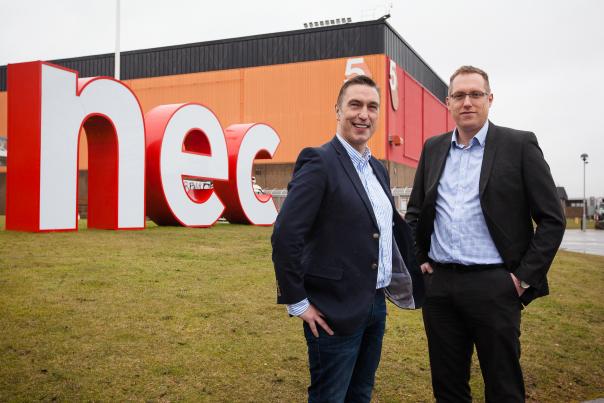
Food waste accumulated from the NEC site, which includes the NEC Venue and Genting Arena, will be transported to Severn Trent Green Power’s £13million food waste anaerobic digestion (AD) plant, on a weekly basis and processed into energy, with leftover material used as fertiliser by local farmers.
Brian Pell, the NEC’s Director of Operations, said: “Sustainability is at the heart of everything we do and we are continually looking for new ways to make our venue more environmentally friendly. Thanks to our on-site Waste Pre-Treatment Centre, we send zero waste to landfill and are committed to ensuring that any waste that travels off site for further processing never travels more than 30 miles – this helps to save CO² emission during travel and keeps our costs down too. Severn Trent’s site is right on our doorstep, less than four miles away, so provides us with the perfect location to send our food waste."
Chris Jellet, Severn Trent Green Power's food waste anaerobic digestion expert, said: “We started constructing the plant within Coleshill sewage treatment works last year and it’s now taking in food waste from local businesses to power the site. Rather than food waste going to landfill, which is costing businesses more and more, we’ll be stopping around 8,000 tonnes of CO₂ from being released into the local environment – that’s equivalent to taking 3,300 cars off UK roads.
"To add to that, every year we expect to generate around 17,000 Gigawatt Hours of electricity from the food waste AD plant, which is enough to power around 4,000 homes or the whole of Coleshill sewage treatment works and more. This means that the site will be totally self-sufficient for its electricity needs.”